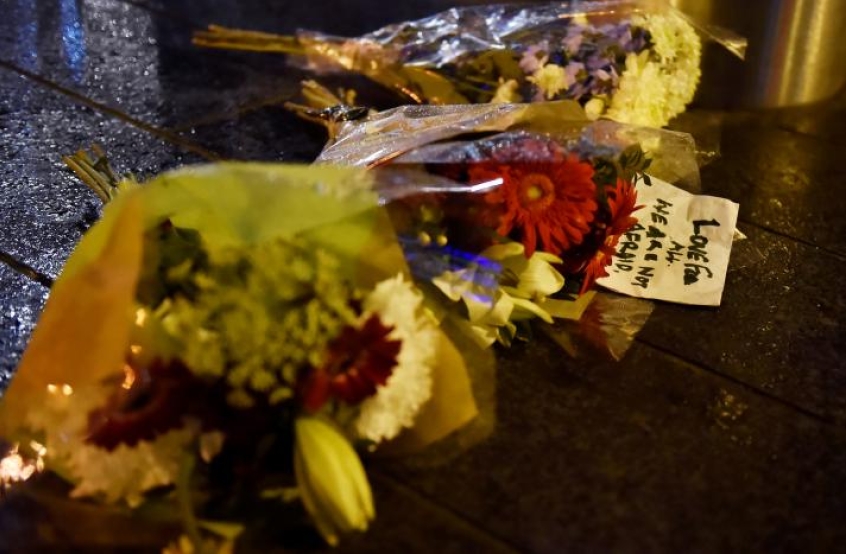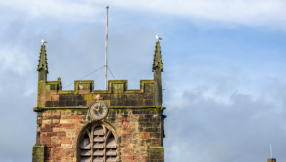
Last night the world reacted to the traumatic news of the terror attack in Westminster, London, in which five died and many more were seriously injured.
Many, facing the overwhelming news of terror, turned to prayer, using hashtags such as #PrayforLondon to show their solidarity with the hurting. In times of pain, chaos and tragedy, we always look for something to hold on to – or someone to blame.
Broadcaster Julia Hartley Brewer opted for the latter, when she thoughtfully tweeted: 'Can everyone stop all this #PrayforLondon nonsense. It's these bloody stupid beliefs that help create this violence in the first place.'
Hartley Brewer received a volley of pushbacks, with many calling the tweet crass, insensitive and ignorant. Nonetheless, her sentiment is one many will sympathise with.
'Religion causes violence.' It's a broken record but a popular one, straight from the playbook of New Atheists like Richard Dawkins and his crusade against the 'God delusion'.
Often it's a charge levelled directly at Islam, because of radical jihadists like ISIS touting the name of Allah in their reign of terror.
Others, like Hartley Brewer, extend the critique to all religion – even humble, desperate prayer. She later tweeted: 'The solution isn't prayers. It's down to real people on a real planet not an imaginary God.'
Religion isn't just useless, they say, it's stupid and dangerous.
Both these dispositions are absurd.
Of course religion has been a cause of violence in the world, but then it's also been a source of great good. Religion is human, and humans are complex. We're capable of profound love, and cruel prejudice. We can be warmongers, and peacemakers. The history of religion simply bears this out. The Church has been responsible for immense injustice, while at other times it has profoundly embodied the way of love, mercy and justice.
The fallacy of blaming religion for humankind's vice is one explained by comedian Frankie Boyle in a recent appearance on the BBC's Room 101.
Critiquing 'celebrity atheists' Boyle, an atheist himself said: 'We all need something to get through, so why stand in judgement of what other people need?
'Okay, some violence is cause by religion, some violence is caused by lager, some violence is caused by people cheating at pool. The moment you go "I'm blaming that on God", that's like you don't get any mayonnaise on your chicken zinger, and you blame it on Colonel Sanders.'
The Christian crusades slaughtered thousands in the name of God. The 20<sup>th century atheist regimes of Stalin and Pol Pot claimed millions. Religion or irreligion can be used to justify anything – it's humans that are to blame.
Some at this stage concede that point, but then insist: 'Yes, but Islam is inherently violent. Read the Quran.' I see this sometimes on Facebook, when following news of recent violence by radical Islam, someone starts quoting Islam's holy text as proof that all Muslims are dangerous, that the whole religion is evil.
I'm no Islamic scholar, but I am grateful to live in a country that bears witness to millions of peace-loving Muslims, doing good and loving others. I'm trusting they read the Quran, and interpret it in such a way that doesn't motivate them to slaughter their neighbours. Their text may be violent – like the Bible can be – but they aren't.
This matters because religion doesn't simply consist in a forensic, literal analysis of certain ancient verses. It can't be labelled as inherently 'violent' or 'peaceful' on that basis. Religion evolves, is interpreted and lives through the ongoing practice of its believers. For better or for worse, it is what people make it.
It can be toxic, it can be beautiful. As a Christian I'm moved and inspired by Jesus Christ, the Prince of Peace. The Bible is full of violent conquest, and yet its story culminates in a God who lays down his life in self-sacrifice. His is the image I seek to follow. He also taught love and charity not just to our neighbours, but our enemies.
In a society where terror threatens not simply our security, but our way of life, that ethic of charity – to all – is more essential than ever. The vision of love and hospitality seen broadly in the human responses to yesterday's attack, are rooted in a religious conviction that implores us to look beyond ourselves. We need that.
Prayer too, despite what Hartley-Brewer says, is still profound. Tears of joy or pain, for example are not particularly 'useful' but often they are what keep us alive - they give us hope, and point us to things yet unseen.
People are to blame for the world's violence. All of us are more complicit in corruption than we'd like to think. So can we resist the urge to blame Muslims, atheists or the religious? If we're so inclined, we should #PrayforLondon, and pray for all that need it. To do so is to transcend the all too human game of hate and blame, and instead in our time of crisis – seek the face of God.
You can follow @JosephHartropp on Twitter













